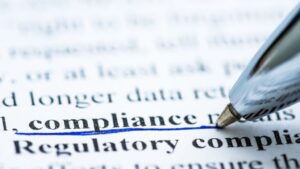Overview of common customer screening tools. Organizations use different tools, to perform the customer onboarding and due diligence process effectively. Legislation such as the USA PATRIOT Act, the EU’s Third Money Laundering Directive, and other global anti-money laundering, know your customer (KYC), and counter-terrorism financing regulations require firms to have effective systems and controls in place to ensure that entities such as criminals, terrorists, terrorist-financing organizations, and others are accurately identified and reported to the appropriate authorities. Some regulations also require businesses to identify and keep a list of Politically Exposed Persons (PEPs) in their customer base.
Common Customer Screening Tools
Any company operating in the United States must follow the Foreign Corrupt Practices Act (FCPA), the United States and strengthening America by providing Appropriate Tools Required to intercept and obstruct Terrorism (USA PATRIOT) Act, and Export Administration Regulations (EARs).
As a result, not only financial institutions must comply with anti-money laundering (AML) and counter-terrorist financing (CFT) legislation. To avoid fines, brand damage, and potential criminal prosecution, mobile network operators, third-party logistics (3PL) providers, trade exporters, and others must now conduct frequent and comprehensive screening.
These tools are as follows:
World-Check
Organizations are burdened with the difficult effort of assessing, monitoring and disclosing risk while remaining competitive because of the complexity of regulatory regulations and the growing dangers of ML/TF. Financial institutions, authorities, and other organizations have used World-Check Risk Intelligence to meet their know your customer (KYC) and third-party risk screening needs.
World-Check makes money laundering, sanctions, and terrorist funding screening easier, allows for extensive monitoring of politically exposed persons (PEP) linkages and networks and detects a wide range of unique third-party threats.
World-Check simplifies the day-to-day customer onboarding process, and the monitoring activities, through the tools that are needed to fulfill the requirements of the customer due diligence, and meet the KYC, AML, and counterterrorist financing legislation, due diligence, and screening requirements.
The World-Check is used as a customer screening tool that allows to better: understand the identity of the customers, understand the nature of hidden ML or TF threats, reveal links between individuals, organizations, and entities, highlight cases that require further scrutiny.
Orbis
Orbis is used to conduct corporate client screening as part of a larger KYC procedure and process. Orbis may be used to find, analyze, and compare businesses all around the world, leading to more informed decisions and more efficient customer onboarding. Orbis is a good tool for validating the existence of a company and collecting corporate data. Orbis can provide thorough business reports, financial strength indicators, and ownership information to help you analyze a company and assess its risk.
Orbis capture, treat and standardize data from a wide range of sources to provide value-added company information. With Orbis’s standardized formats, the organization can search for information on companies across regions and countries with who business relationships are to be developed. Possible search criteria may be used to include the actual financials, growth rates, and estimates. Orbis offers:
information on companies in all countries;
public and private company data including banks and insurance companies;
financial strength metrics and projected financials;
scores on companies with limited financials;
PEPs and sanction;
associated news and independent research;
data on individuals associated with companies;
patents and intellectual property;
PIEs (Public Interest Entities);
extensive corporate ownership structures and beneficial ownership information;
original as-filed documents and document ordering services;
global deals and rumors.
Using Orbis the organizations search globally, because of the availability of the international and local industry codes. Orbis helps in understanding the ownership structures of companies by providing the lists of:
direct and indirect subsidiaries and shareholders;
a company’s degree of independence;
a company’s ultimate owner;
other companies in the same corporate family;
Compliance and third-party due diligence Use Orbis to enhance your anti-money laundering (or AML) and KYC research, reputation risk management, and customer due diligence (or CDD). In addition, the implementation tool lets you automate and speed up your FATCA and CRS pre-screening processes.
LexisNexis
LexisNexis is a company that sells data mining platforms, computer-assisted legal research (or CALR), and consumer data all over the globe through internet portals. LexisNexis began making legal and journalistic materials available electronically in the 1970s. The firm held the world’s largest computerized database for legal and public-records information as of 2006. LexisNexis also creates a variety of software, services, and solutions to assist lawyers in their work.
LexisNexis offers the business AML and KYC solutions to make onboarding and due diligence easier and more focused. As part of the broader KYC approach, LexisNexis’ product is utilized to screen corporate customers as well as other prospective consumers. Such technologies aid in the discovery, analysis, and comparison of organizations throughout the world, allowing for better decision-making and enhanced efficiency in the client onboarding process. The tool is used to confirm the existence of a company and to get corporate reports. Orbis can give detailed business reports, financial strength indicators, and ownership information to assist you in researching a firm and determining the risk it poses.
Organizations also use the tools of LexisNexis for ongoing due diligence, enhanced due diligence, risk profiling, screening, adverse media checks, and identification of PEPs.
It helps in managing the complex financial crime regulatory requirements and enables compliance with applicable AML or KYC regulatory requirements.
Final Thoughts
While the majority of financial institutions have automated their KYC and CDD processes, many are dissatisfied with the cost and inflexibility of their current approaches. This, combined with the fact that a broader industry community is now subject to the same legislation, is driving a demand for next-generation watchlist screening solutions that maximize operational effectiveness while achieving optimal cost efficiency.


